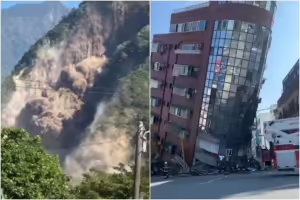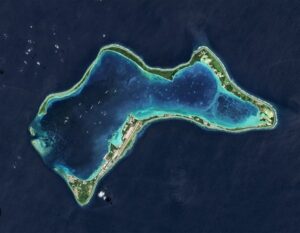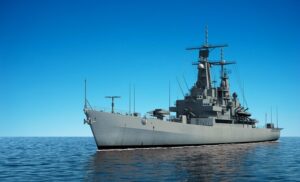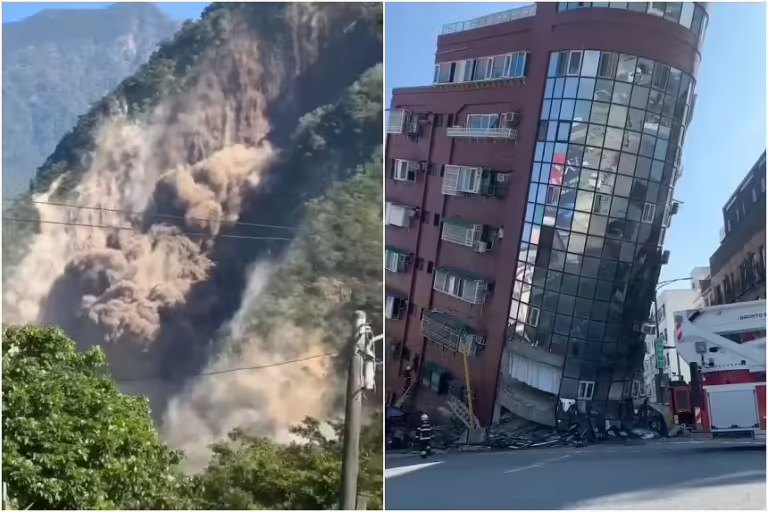US, Canadian warships cross Taiwan Strait
In recent times, the movement of warships through the Taiwan Strait has garnered significant attention. The United States and Canada have been actively involved in this region, contributing to the complex dynamics of East Asia’s geopolitical landscape. This article will delve into the intricacies of this situation, exploring the reasons behind the presence of US and Canadian warships in the Taiwan Strait and the reactions it has elicited.
The Geopolitical Significance of the Taiwan Strait
The Taiwan Strait holds immense geopolitical importance. It is a body of water that separates Taiwan from mainland China, making it a strategically vital passage. The issue of Taiwan’s status is a contentious one, with China considering it a part of its territory, while Taiwan operates as a separate and self-governing entity. This has led to long-standing tensions in the region.
US and Canadian Naval Presence in the Region
The United States and Canada have maintained a consistent naval presence in the Asia-Pacific region. This presence is based on ensuring freedom of navigation, safeguarding regional stability, and protecting their interests. Both nations have alliances and partnerships with countries in the region and have a vested interest in maintaining peace.
Recent Developments: US and Canadian Warships Crossing the Taiwan Strait
Recent developments have seen US and Canadian warships crossing the Taiwan Strait. These actions are often regarded as a show of support for Taiwan’s autonomy and a demonstration of freedom of navigation rights. The missions are carried out to assert international norms and maintain a balance of power in the region.
China’s Reaction and Concerns
China has consistently expressed its opposition to the presence of foreign warships in the Taiwan Strait. It views such actions as an infringement on its sovereignty and a challenge to its stance on Taiwan. China’s response to these movements has been vocal and at times confrontational.
International Response
The international community closely monitors developments in the Taiwan Strait. Various countries have differing views on the matter. Some support the presence of US and Canadian warships as a means to uphold international law, while others are more cautious and emphasize diplomatic resolutions to avoid escalation.
Importance of Freedom of Navigation
One of the core principles behind the presence of foreign warships in the Taiwan Strait is the protection of freedom of navigation. The United Nations Convention on the Law of the Sea (UNCLOS) upholds the right of ships to pass through international waters without interference, a principle that is integral to global trade and security.
Ensuring Peace and Stability
Maintaining peace and stability in the Taiwan Strait is crucial for the broader security of the region. Any conflict or escalation in this area could have far-reaching consequences, affecting trade, international relations, and security.
The Role of Diplomacy
Diplomacy plays a vital role in managing tensions in the Taiwan Strait. It is imperative for nations to engage in dialogues and negotiations to prevent conflicts and find peaceful resolutions to the complex issues surrounding Taiwan’s status.
Future Implications
The situation in the Taiwan Strait remains fluid, with potential future implications. As the geopolitical landscape continues to evolve, it is essential for nations to carefully navigate this region to avoid any unforeseen conflicts.
The Security of Taiwan
The security of Taiwan is a topic of concern for many. The delicate balance between asserting autonomy and avoiding confrontation with mainland China poses challenges for the island nation.
Conclusion
In conclusion, the presence of US and Canadian warships in the Taiwan Strait underscores the intricate web of geopolitics in the Asia-Pacific region. It is a manifestation of the global commitment to freedom of navigation and the protection of international norms. The situation is complex and requires careful management to ensure peace and stability in the region.





















+ There are no comments
Add yours